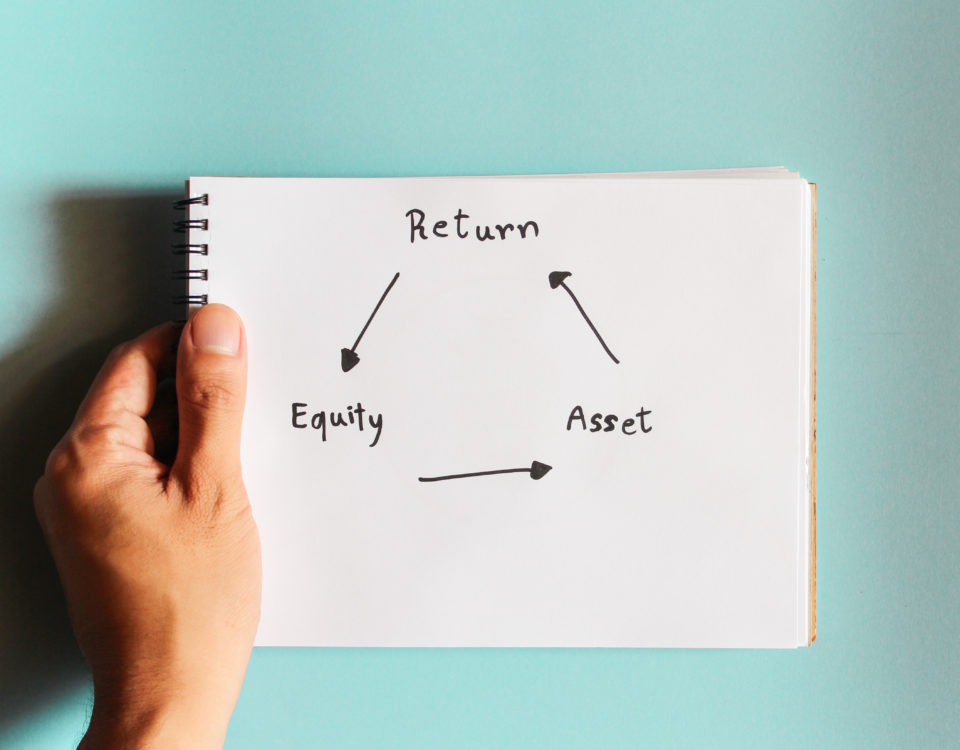- The first step is making the call.
- 1300 022 482
- hello@searchpartyproperty.com.au
Property Investing Strategy
- Filter by
- Categories
- Tags
- Authors
- Show all
- All
- Articles
- Bitcoin
- Crypto Currency
- First Time Fun
- First Time Property Investing
- How To
- Interviews and Property News
- Investment Strategy
- Market Update
- Motivation
- Podcast
- Problem / Solution
- Property Cracker Deals
- Property Investing
- Property Lessons
- Property Market
- Property Minute Videos
- Sydney Western Suburbs
- Top 10
- Uncategorised
- Uncategorized
- Videos
- All
- #buyersagent
- #Buyingsmallapartments #buyingbigapartments #bigsvssmall #buyingproperty #propertyinvesting
- #propertinvesting
- #propertybuying
- 2018 Plan for Property Investing
- 2018 Property Market
- 2021 Property Market Wrap-up
- A difficult tenant
- Adding Value to your property investment
- Adelaide
- Adelaide Property Market
- Affordable housing Australia
- Affordable Housing Sydney
- airbnb
- Apartment Living
- As of 31st December 2021
- Attending Property Seminars
- Auction Sales
- August 2022 Property Market Update
- Australia
- Australian Lifestyle
- Australian Property
- Australian Property Distribution
- Australian Property Market
- Avoiding Strata Nightmares
- baby boomers property investment
- badgery's creek
- basic property investing strategy
- Be a Property Investor
- Beach or Buy
- Beachside Property
- becoming a property investor
- benefits of property investing
- best investment properties in Australia
- best real estate investments
- Big Family Living
- Bitcoin
- Bitcoin Bus
- Boarding houses
- Boat House
- Brisbane Buyers Agent
- Building a property portfolio
- building and pest inspections
- building inspections
- building property investment portfolio
- Building wealth through property investing
- Building your property investing team
- business
- Buyers Advocate
- Buyers Agent
- Buying a Car
- Buying a deceased estate
- Buying a House
- Buying a property investing
- Buying a property investment
- buying a property next to an airport
- buying a property next to powerlines
- buying a property on a main road
- Buying a property without seeing it
- Buying Apartment Property Investment
- Buying at Auction
- buying first investment property
- buying in a bad market
- buying investment property
- buying my first property investment
- Buying near the Beach
- Buying Overseas Property
- Buying Property
- Buying property in Summer
- Buying Property In Sydney
- Buying Property Interstate
- Buying Property Investing
- buying property investment
- buying property investments
- buying property next to a cemetery
- Buying Property off the plan
- career
- Cash in the Bank
- Cash or Investing
- Central Coast Property
- choice
- Christmas Property Market
- Climate Change
- Climate Change and Property
- Co-Investing
- Commercial Property
- Commercial Property Investment
- Considerations when selling investment property
- conveyancing searches
- Core Logic
- Cracker Deals April
- Cracker Deals May
- Crypto Currency
- customise
- Deceased Estates
- December Market Smart
- decision
- Definition of Home
- depreciation
- depreciation schedule
- development
- different ways to invest in real estate
- diversification
- dreams
- experienced property investor
- family
- Fear Debt
- Fear of Debt
- Federal Budget 2017
- Finance Broker
- Finance for Property Investing
- Finances
- financial freedom
- financing
- find investment properties
- finding a property investment
- Finding Investment Property
- Finding my first property investment
- finding my property investment
- finding property investment
- Finding property investments
- Finding Tenants
- Finding the right loan
- Firing your property manager
- First Home Buyers Grants
- first investment property
- First Property Investment
- First Time
- First Time Fun
- First Time Investor
- First Time Play List
- First Time Property Investing
- First Time Property Investing Program
- Flipping Houses
- Fun in Property Investing
- Future predictions for 2022 Property Market
- Future Property Market
- Getting Started
- Getting Started in property developing
- Getting started in property investing
- Getting your first property investment
- Going it alone property investing
- Good Debt
- Ground work
- Group Investing
- Hedonic Indices
- hibernation
- high yield
- Highlights for Property Investors
- Home Ownership
- Household size
- housing
- How much do I need to get started in property investing
- How To Approach Property And Tax
- How To Be On A Strata Committee
- How to Build A Granny Flat
- How to Build A Property Team
- How To Buy A Property Without Seeing It
- How To Fire Your Property Manager
- How to get started in property developing
- How to get started in property investing
- HOW TO Have A Difficult Conversation With A Tenant
- HOW TO Improve Your Investment With A Good Strata / Body Corporate Committee?
- How to Make Property Investing your main revenue stream
- HOW TO Not Get Emotionally Attached
- How To Rentvest
- How to start property investing
- How to Win At Auction
- How To Work With A Buyers Agent
- Hunter Region NSW Deals
- I Am Getting Bored With Property Investing
- I Am Nervous About Buying Interstate
- I Am Nervous About The Time Required To Look After The Investment
- I Cannot Afford To Buy In Sydney
- I Don't Know Where To Start
- I Have Been Thinking About Investing But Still No Action
- I Think The Market Isn't Good To Buy
- industrial
- Inflation
- infrastructure
- inspecting your property investment
- Interest Rates
- Interstate Property Investing
- Intuition and property investing
- invest
- investing
- Investing Goals
- investing in property
- Investing Knowledge
- investment
- Investment Data Points
- Investment Decisions
- Investment Property
- Investment Property Management
- Investment Strategy
- Is cash king?
- Island Living
- January Market Smart
- July 2021 Australian Property Market
- June Property Deals
- Knowing who to trust
- LA Property Flipping
- Land tax
- Landlord
- Landlord Considerations
- Landlords
- Leverage
- Life Goals
- Life Style Property Investing
- Liquidity
- Losing the property deal
- Luke's 2018 resolutions
- Main Income Stream
- Make Property Your Revenue Stream
- managing property investment
- Managing Tenants
- managing your property investment
- managing your property manager
- market
- market conditions
- market smart
- May 2020 Property Deals
- Meaning of home
- Melbourne
- Melbourne Buyers Agent
- Melbourne Property
- momentum
- mortgage loans
- Mount Druitt Deals
- multiple properties
- my first property investment
- My First Time
- My First Time Property Investing
- my first time property investment
- My Investment Property
- My Life in Firsts
- myths
- navigate
- Negative Gearing
- New ways of property investing
- New Years Resolutions
- next
- Non-attachment and property investing
- November Market Smart
- October 2021 Australian Property Market
- October 2022 Property Market Update
- old fashioned
- old school
- One size
- One size fits all
- Other Investments
- Overseas Property Investing
- overseas property investment
- Overthinking Investing
- Overthinking Property Investing
- Owning your home
- Parents investing for their children
- Parents provide financial assistance
- Passions
- Passive Income through Property Investing
- Perth Property Market
- Pest and Building Inspections
- pest inspections
- Pets in Investment Properties
- Primary Property Investing Research
- Propert Market Pricing in Australia
- property
- Property & Tax
- property asset
- Property Auctions
- Property Buyers
- Property Buyers Agent
- Property Co-Investing
- Property Coaching
- Property Community
- property conveyancing
- Property Deals
- Property Deals April 2020
- Property Developing
- Property Education
- Property Group Buying
- Property Inspections
- Property Investing
- Property Investing Australia
- Property Investing brings Freedom
- Property Investing Education
- Property Investing Fun
- Property Investing Goals
- Property Investing Ground Work
- property investing history
- Property Investing insights
- Property Investing Lessons
- Property Investing Management
- Property Investing Plan
- Property Investing Program
- Property investing research
- Property Investing Seminar
- Property Investing Strategy
- Property Investing Team
- property investing wealth creation strategy
- Property Investment
- Property Investment Buyers Agent
- Property Investment Learnings
- Property Investment loans
- Property Investment Strategies
- Property Investment Strategy
- Property Investments
- Property investor
- Property Investors
- Property Managers
- Property Market
- Property Market Changes
- Property Market Education
- Property Market Expectations
- Property Market Spotlight on Keperra in QLD
- Property Market Spotlight on Kincumber NSW Central Coast
- Property Market Spotlight on Nambou in Sunshine Coast
- Property Market Success
- Property Market Update
- Property Marketing
- Property podcasts
- Property Portfolio Strategy
- Property Predictions
- Property Price
- property prices
- Property Renovation
- Property Search
- Property Seminars
- Property Seminars Extra Benefits
- Property Tax Accounting
- Property team
- Property team of experts
- Property Trends
- Queensland Property Investment
- Queensland Property Market
- Recommended Podcasts
- Recommended Reading
- Redcliffe property market
- reflect
- Regional Market
- Regional Property Investing
- Relationship with Money
- Remote Living
- Renovate
- Renovate for Profit
- Renovate or Invest
- rent
- Renting Strategies
- Renting your home
- Rentvesting
- retirement
- Retirement Goals
- Revenue Streams
- risk
- Safe Property Investing
- Saving for a deposit for Property Investing
- search party
- search party property
- Searching for property investment
- Seasonal Tourism Areas
- Seasonality
- second property
- Self Managed Super Funds
- September 2021 Australian Property Market
- Shared Living
- Should I invest
- Should I Invest in property
- slow
- Smart Debt
- Smart Investing
- SMSF
- Solo Property Investing
- sought
- South East Brisbane Deals
- South East QLD Property Market Review
- standard approach
- Start property investing
- Starting Property Investing
- Steps to take - Property Investing
- strata
- Strata Committee
- Strata Committee Management
- strata management
- Strata Nightmares
- Strategic Property Investing
- strategy
- Supporting Family & Friends Invest
- Sydney Buyers Agent
- Sydney Property
- Sydney Property Bubble
- Sydney Property Market
- Sydney Western Suburbs
- taking action in property investing
- Taking action on property investing
- Taking the First Step
- Talking to locals about property
- tax
- Tax Considerations
- The Great Australian Dream
- The heart is in the home
- THE PSYCHOLOGY OF ‘FIRSTS’
- Time to look after property investment
- Tips for Buying at Auction
- Tips for overthinkers
- TOP 10 People To Have In Your Property Team
- TOP 10 Reasons For Buying International Property Investments
- TOP 10 Reasons For Having A Long Term View To Property Investing
- TOP 10 Reasons To Start Investing In Property
- TOP 10 Reasons Why Property Is Fun
- TOP 10 Reasons Why Property Is The Best Investment
- TOP 10 Reasons Why You Wouldn't Get Into Property Investing
- TOP 10 Things To Look At When Searching For Property
- TOP 10 Ways To Ascertain Trust
- Type of Property Investment
- Update for February 2022
- Update for January 2022
- US Property Market
- Using equity
- vertical growth
- Wealth Creation
- Wealth Creation through Property Investing
- Wealth for What
- Western Suburbs Property
- Western Sydney Property
- What If I Don't Have A Deposit
- What is a good investment
- What is a home
- What to look for when property investing
- where not to buy a property investment
- where should i buy an investment property
- where to buy investment property
- Where to buy property investments
- Where to invest
- where to start when property investing
- Why be on the body corporte
- why start property investing
- Win at auction
- Win at Property Auction
- winter
- Your best investment
July 28, 2022
As a property investor, equity is the key to your long term success. It reflects the increasing value of your portfolio and will make up a significant proportion of your returns. It can also help fund further growth of your portfolio, either through renovating your existing properties or buying new ones.
But exactly how do you use your existing equity to boost your portfolio growth? And how do you make sure you are getting the best possible return from this reinvestment?
Do you like it?
August 8, 2022
If you are like most investors, your borrowing capacity will have a major impact on the growth of your portfolio. Your budget for each purchase will usually be highly dependent on how much money you can access. And your ability to take out further loans will dictate whether you can buy further investment properties.
But no matter how successful of an investor you are, there is a limit to how much you can borrow. So, what happens when you have reached your capacity and cannot borrow more? How do you keep your investment growing and continue making progress toward your goals?
Do you like it?
August 24, 2022
Right now, the property market probably seems even more unpredictable than usual. With interest rates increasing and prices falling in many areas, it is hard to know what move to make next. This is understandably causing anxiety for many investors, who are afraid of costing themselves dearly by making the wrong call.
Do you like it?
August 30, 2022
Debt is a bit of a complex topic for property investors. We need it to fund further purchases, grow our portfolios, and can even use it to reduce our tax bills. However, it can also eat into our returns, negate our gains, and even drive us to sell off assets. Based on this, many investors view debt as a “necessary evil” – something that should be used sparingly and managed conservatively. While this approach should help minimise the risks associated with taking on debt, it can actually inhibit portfolio growth. It also overlooks that not all debt is created equal, and that some debt is actually good debt.
Do you like it?





